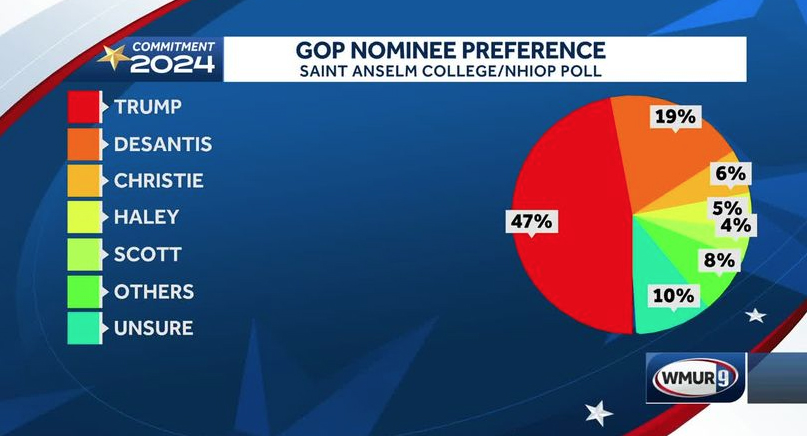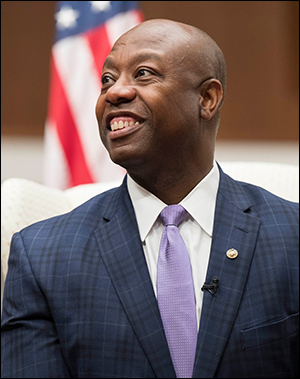By Jim Ellis — Wednesday, April 17, 2024
President
 Will the abortion issue be a major vote driver in 2024? (Human fetus shown at week 9 / Source: Fetal development gallery)[/caption]Abortion was a major vote driver in 2022, but the question currently being asked is will it also be one in 2024? A new Arizona survey suggests the Biden campaign will not be happy with the findings.
Will the abortion issue be a major vote driver in 2024? (Human fetus shown at week 9 / Source: Fetal development gallery)[/caption]Abortion was a major vote driver in 2022, but the question currently being asked is will it also be one in 2024? A new Arizona survey suggests the Biden campaign will not be happy with the findings.
With the Arizona state Supreme Court recently upholding a more than century-old abortion law in response to the US Supreme Court overturning the Roe v. Wade decision in 2022, Fabrizio Lee & Associates tested the Arizona electorate for ex-President Donald Trump’s campaign (April 7-11; 400 likely Arizona general election voters; live interview & text).
According to the poll analysis, the abortion issue’s heavy coverage in the state has not yet swayed the swing voters. While Democrats are the group who largely mention abortion as the most important recent issue, independents, and a category that Fabrizio Lee terms as “Persuadables” do not.
The pollsters wanted to capture just how much of the attention being paid to the Arizona abortion ruling is affecting the state’s electorate. They asked: “Over the past couple of days, what ONE story about politics or world affairs has captured your attention enough that you are following that story? If there hasn’t been one, just say so.”
The responses showed that only 11 percent of the respondents named the abortion decision as the subject matter being most followed. The top response was the Gaza/Israel issue, (16 percent) and border/illegal immigration (13 percent) was next. Delving into the choices from the current Arizona sample, 24 percent of Democrats named abortion as the ONE story as compared to seven percent of persuadables, six percent of independents, and five percent of Republicans.
Perhaps the most interesting part of the poll pertained to which presidential candidate’s abortion position the respondents more closely identified with.
The candidates’ positions were stated as follows:
- “Donald Trump believes that the decision on abortion laws should be left up to the states so that voters in each state can decide. However, Trump is opposed to late-term abortion and would end federal taxpayer funding of abortions.”
- “Joe Biden supports unrestricted access to universal abortion – including abortion up through the 9th month of pregnancy and he supports taxpayer funds to pay for abortions for any reason.”
By a 51-40 percent split, Trump’s position was cited as being more favorable. Therefore, responses such as this suggest that Republican strategists pushing for a more aggressive response on the abortion issue to counter the Democrats’ advantage may have something upon which to build.
Dividing the responses into voter groups, persuadables favored Trump’s position by 45-41 percent; Independents move 50-39 percent in alignment with Trump’s position, and predictably, so do 83 percent of Republicans and 13 percent of Democrats.
Therefore, President Biden appears not to be gaining new Arizona votes from the abortion controversy according to this survey sample at least in the short term. Thus, the ballot test, including Trump, Biden, Independent candidate Robert F. Kennedy Jr., Green Party nominee Jill Stein, and probable Libertarian Party nominee Lars Mapstead, finds Trump leading the field with a 42-37-10-2-1 percent margin, respectively.
It is quite likely that an abortion initiative will be on the Arizona ballot this November. The Arizona for Abortion Access campaign is attempting to qualify and pass language into the state Constitution that would guarantee access to abortion procedures before fetal viability.
Under Arizona initiative law, proponents must gather 383,923 valid Arizona registered voter signatures before July 3, 2024, the deadline for it to be able to appear on the November ballot. The signature qualification number represents five percent of the votes cast for governor in the most recent election (2022). At this point, the AFAA campaign contends they already have over 500,000 signatures on petitions and will continue to gather them through the deadline.
Arizona is one of the seven critical swing states that will determine the presidential election’s outcome. Democrats will use this initiative to increase their coalition turnout both through early voting and on Election Day.






